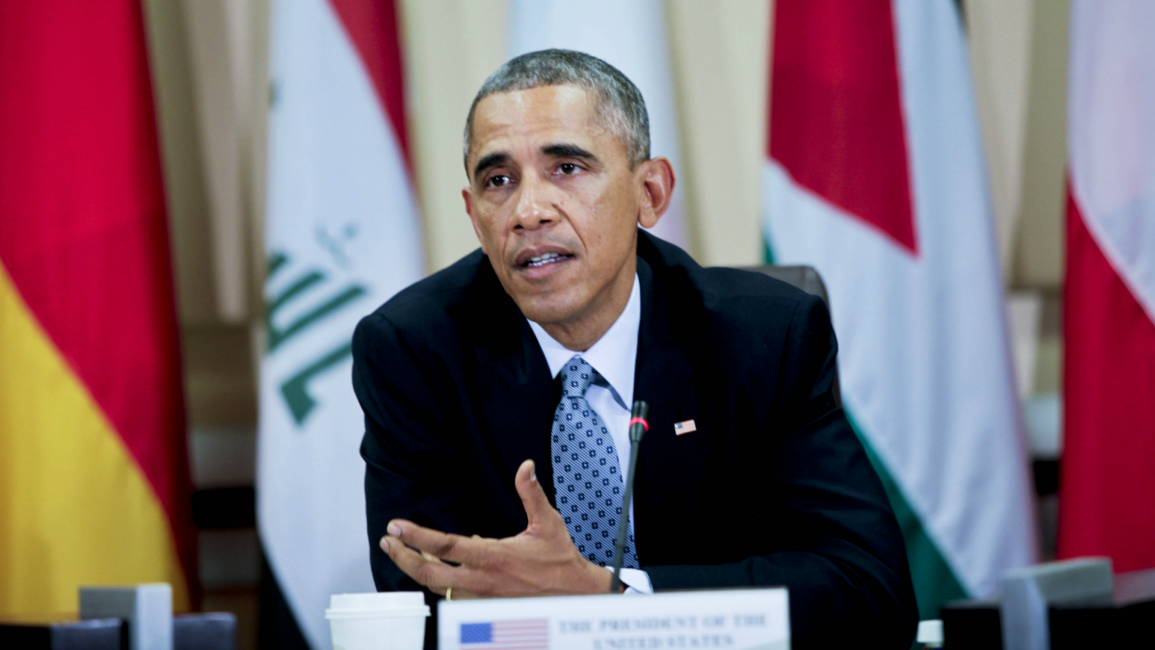
The sun also rises on Camp David
Many in the Arabian Peninsula say you can watch the sun setting on the American empire just by looking out of the window.
Over the past 18 months, officials and observers from the Sunni Arab monarchies of the Gulf Cooperation Council have been more vocal about what they see as a US strategic withdrawal from the region, as a looming US-Iran nuclear deal places a sharp edge on longstanding concerns.
They have criticised the US president, Barack Obama, for his reluctance to apply decisive force to the conflict in Syria and his administration's ongoing pursuit of a "grand bargain" with Iran, aimed at limiting its nuclear programme in exchange for lifting sanctions on its economic activities.
As the monarchies have struck an increasingly independent stance in Arab affairs, the US has appeared to be playing catch-up with its Gulf allies. The Saudi-led "Decisive Storm" operation in Yemen is widely seen as a key step for the region's countries taking matters into their own hands, albeit one supported by US munitions and intelligence.
At the same time, several GCC leaders have made public efforts to diversify their national security backing. Qatar and Saudi Arabia have made extensive tours of east Asian capitals, while Bahrain has agreed to fund the return of the British Royal Navy to its waters.
The Obama administration is certainly aware of these concerns, despite having pointedly frozen out all but Oman - which facilitated initial talks - over the course of negotiations with Iran.
Once the P5+1 reached a framework agreement over the Iranian nuclear issue, Obama announced a two-day summit with GCC leaders for May 13-14 in the intimate space of Camp David to discuss "security cooperation".
The key Gulf player in this meeting is undoubtedly Saudi Arabia - the largest and wealthiest country in the GCC, Iran's chief rival, and the leader of the coalition in Yemen.
| Many reports initially deemed this a clear signal of Gulf displeasure with US policy - a snub, as it were, to Obama's overtures. |
Thus it was that numerous new outlets seized on the news that the Saudi king, Salman, would not be attending. Many reports initially deemed this a clear signal of Gulf displeasure with US policy - a snub, as it were, to Obama's overtures.
This view certainly plays into critics' views that the naive Obama administration is running roughshod over traditional allies in the region. Yet the embarrassment over Salman's absence appears more a public relations gaffe on the US administration's part than a deliberate rebuke by the Saudi government.
Whatever the official reason, Salman faces real health concerns that might hinder his participation - and regardless, the crown prince Muhammad bin Nayef and his deputy Muhammad bin Salman are attending instead.
Muhammad bin Nayef's strong ties to the US political establishment and the pair's broad authority over Saudi operations in Syria and Yemen mean that Saudi views will be well-represented at the discussion table.
Qatar's emir, Tamim bin Hamad, and his Kuwaiti counterpart Sabah al-Ahmad are both in attendance. Sultan Qaboos of Oman will not be attending, yet has not attended much of anything since returning from medical treatment in Germany - the able deputy prime minister, Sayyid Fahd bin Mahmoud, will ably represent the sultanate's interests.
Crown Prince Muhammad bin Zayed - for many years the de facto ruler of the UAE - will be in attendance.
Bahrain's king, Hamad bin Issa, will be staying away but the state delegration will be lead by the more reformist crown prince, Salman bin Hamad, rather than any one of a number of government hardliners.
At each turn, the GCC attendance list suggests a desire to seriously engage with the Obama administration despite strained relations over the past several years - not a Gulf-wide snub.
| While US-GCC tensions are real, the idea of a sharp rift is a fantasy. |
While US-GCC tensions are real, the idea of a sharp rift is a fantasy. No other nation is willing and able to supply the GCC with the complete array of weapons, training and implicit security guarantees it currently enjoys.
The GCC states continued to rely heavily on the US to backstop their own national security, regardless of how they feel about the wisdom of US engagement with Iran.
Notably, the one clear outlier to the present period of relative GCC unity - Oman - sits closer to the administration's Iran policy (and its views on the conflict in Yemen) than its peers.
The Obama administration is certainly aware of this. Its overriding aim over the next few days is to secure enough GCC support for a deal with Iran to reassure the US Congress that key allies in the region aren't being left by the wayside.
Its secondary objective will be to avoid any new entangling commitments to the Gulf - arms sales, training exercises, missile defence technology, are all fine. But no spelled-out security pact with the GCC.
Beyond, it is unclear what Saudi Arabia and its allies can secure in return for endorsing the deal. At a minimum, the Decisive Storm coalition will likely continue to enjoy as much access to US weaponry and diplomatic cover as it needs to continue pounding the Houthis and Saleh loyalists, whatever the extent of Iran's actual involvement.
Assuming enough coordination on this point, Gulf representatives at Camp David can also make a strong case for greater US pressure on the Assad regime in Syria.
Given the recent gains by rebel coalition Jaish al-Fath, GCC officials can point to this as a clear area for the US government to act on regional crises as well prioritise resolving those crises over securing an at-all-costs deal with Iran.
Whether the Obama administration has any interest in listening to their proposals is another matter entirely.




